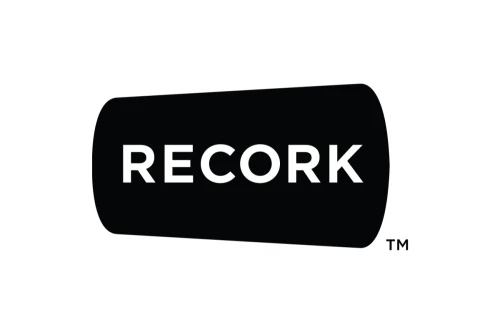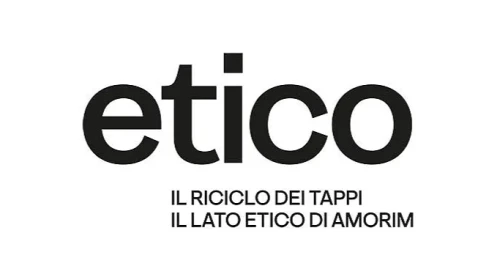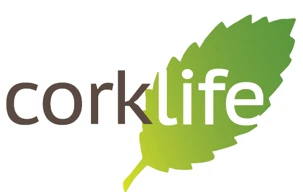- Sustainability
- Recycling
Recycling Cork A New Beginning
Cork stoppers are biodegradable and absorb CO2, but their life doesn't end when you open a bottle. Recycling and reusing materials extends the life cycle of the cork stopper, contributing to a better world. Although recycled cork is never used to make new stoppers, it can be used in multiple applications.
Cork stoppers, like the cork oak they come from, naturally retain CO2. A single cork stopper is capable of absorbing 56.4 g of CO2. But for a material as special as cork, this is just the beginning. Pop! The bottle has just been opened and a new journey for cork begins.

If cork stoppers are naturally positive, the possibility of extending their life cycle through recycling and reuse breathes new life into their ecological profile.
As the world's largest cork producer, Amorim has played a pioneering role in cork recycling. The group first launched a cork stopper recycling programme in Portugal in 2008 - Green Cork - and similar initiatives were quickly adopted in other countries, such as the United States and Canada (ReCork and The Cork Collective), France (EcoBouchon), Italy (Etico), Spain (Cork2Cork), South Africa (Amorim Cork Life) and Australia (ReCork). In several countries, cork stopper recycling campaigns have an added dimension of social responsibility. For every tonne of cork stoppers collected, a donation is made to an institution, benefiting civil society.
Although cork stoppers are sustainable by nature - a 100 per cent natural and biodegradable product - their positive environmental impact can be extended through recycling. At Amorim's cork recycling plant, used cork stoppers are treated and transformed into cork granules, opening up a new cycle. Although it can never again be used as a raw material for other cork stoppers, recycled cork can be used in multiple applications, from coverings to insulation, sports surfaces, tennis balls, shoes and aircraft components.
Reusing by-products of the industrial process, so that nothing is lost and everything is transformed, is another Amorim practice. Only 30% of cork fulfils the quality requirements needed to produce natural cork stoppers, but the rest is not lost. Grinded and transformed into granules, the cork goes back into the production process to produce technical stoppers, expanded cork or composites. Production waste is converted into biomass - cork powder - which covers more than 68 per cent of the group's energy needs. From planks to cork powder, a perfect circular economy model becomes a reality.
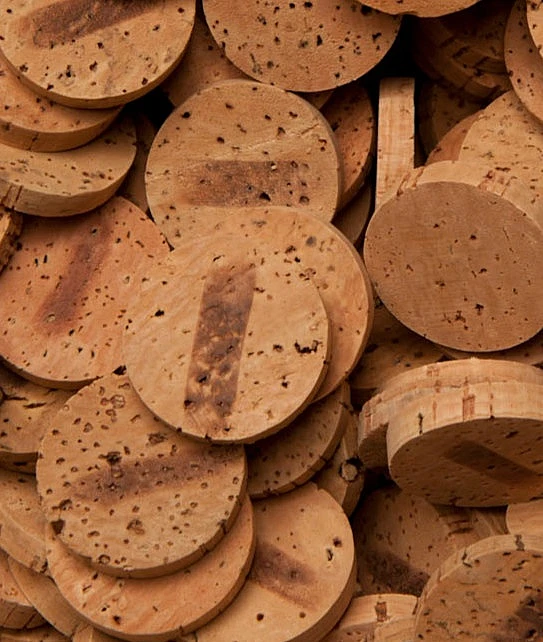
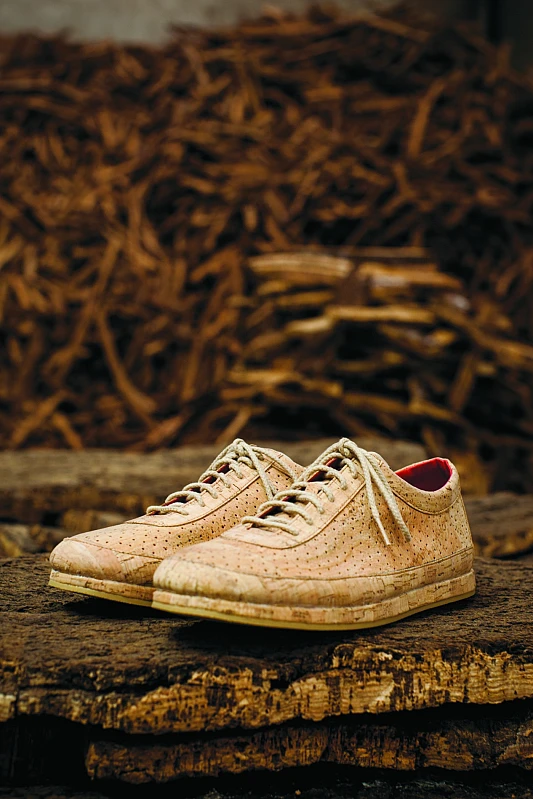
“Working with a material where waste does not exist, because it is fully recyclable, allow us to design freely and gives us the freedom to explore different geometries”
Our recycling programmes:
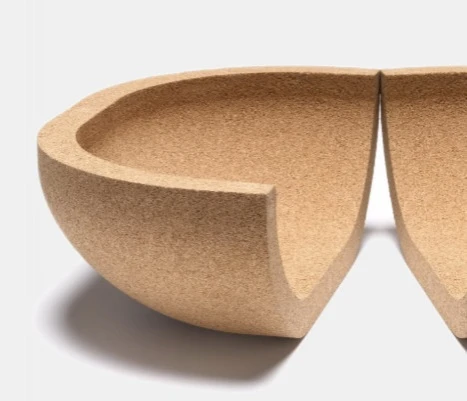
GREEN CORK
Implemented in 2008, Green Cork is a Quercus project, developed in partnership with Corticeira Amorim and several other partners, which collects cork stoppers and finances the planting of native trees through the Common Forest Programme. Through this programme, more than 117 million cork stoppers have already been collected and more than 1,550 trees planted. A true circular economy project that not only extends the life cycle of cork, but also makes a positive contribution to preserving Portugal's forests.
RECORK
It’s the largest cork recycling project in the United States and Canada, created in 2008 on the initiative of the footwear company SOLE. The recycled cork stoppers, collected through a network of more than 3,000 partners, are transformed to be applied in the production of shoe soles.
ECOBOUCHON
Launched in 2009, it is responsible for most of the cork stoppers recycled by Corticeira Amorim - around 300 tonnes of stoppers a year - and has a strong social responsibility component, supporting various charity institutions, like Agir Cancer Gironde.
ETICO
Created in 2011, it has around 1,000 volunteers and more than 5,000 collection points. Inspired by this project and Italy's close ties to the world of design and architecture, the SUBER collection was launched in 2019, offering a new range of contemporary furniture and objects made from recycled cork.
CORK2CORK
Based on a partnership with NH Hotels, Cork2Cork started in 2011, with the aim of collecting cork stoppers in hotels located in Spain, Belgium, Italy, Germany, France and the Netherlands. To date, more than two tonnes of corks have been recycled and 8,000 m2 of flooring produced (the equivalent of around 300 hotel rooms).
AMORIM CORK LIFE
Launched in 2013, among other initiatives, Amorim Cork Life helps to create jobs through the construction of handicrafts and decorative objects, based on recycled cork stoppers, making a real impact not only on the environment, but also on the local community.
RECORK
Launched in 2023, in partnership with Dan Murphy and RM Williams, this programme recycles cork stoppers to produce cork soles for boots. New partnerships are being established and, to date, the programme has already collected 1.4 million cork stoppers, promoting an extended life cycle for this product.
Launched in 2024, in New York, with the aim of reducing waste, this project collects used cork stoppers from local businesses, wineries, and consumers to be repurposed rather instead of being discarded in landfills. Besides promoting circular economy, this initiative educates people about the importance of cork. Through partnerships and awareness campaigns, the programme not only minimises environmental impact, but also values wine culture and the tradition associated to cork.
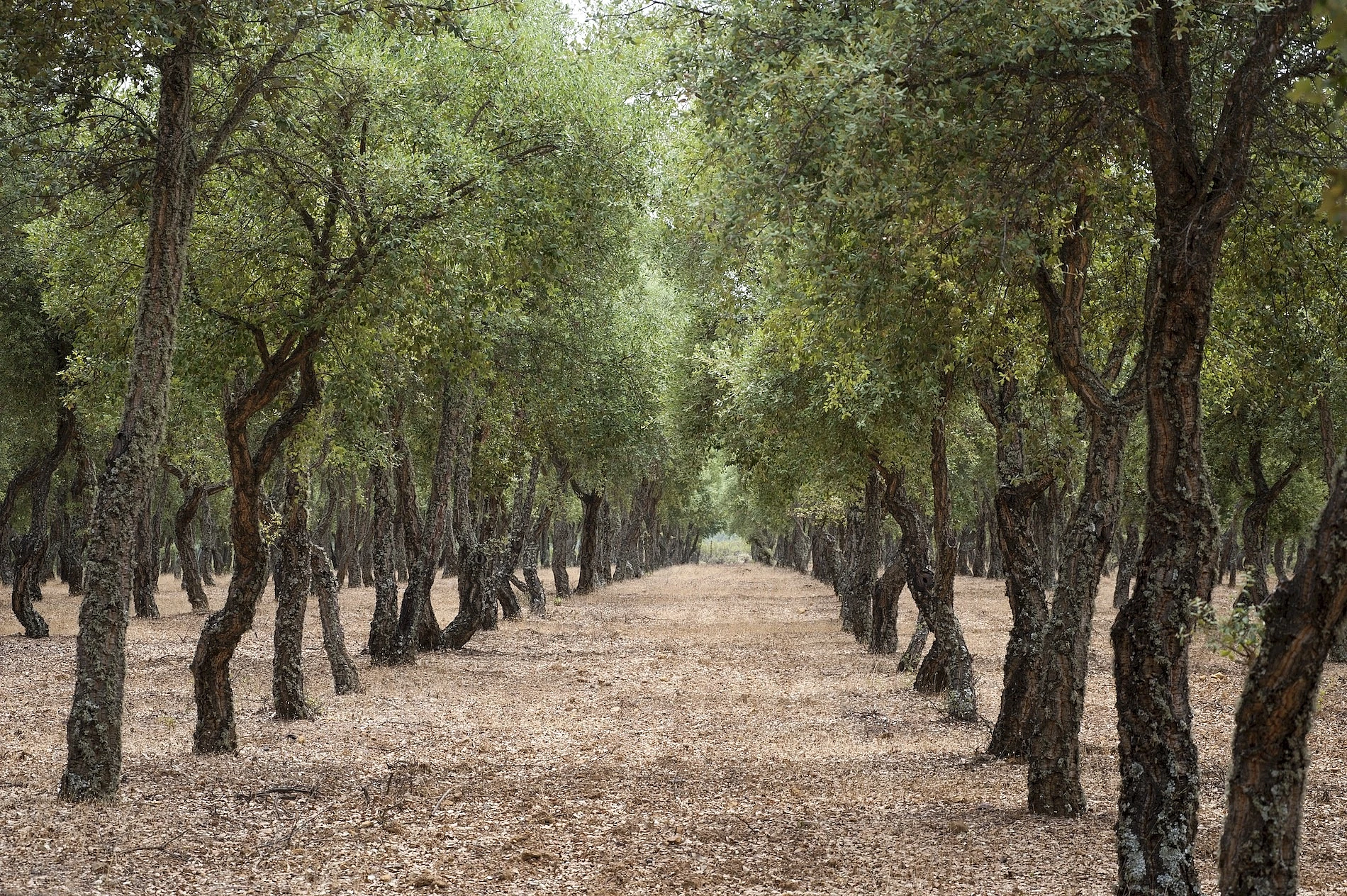
Cork Oak Forest
Cork oak forests, known as Montado, are ambassadors for sustainability and a driving force behind sustainable development. They play a decisive role in the planet's ecological balance, combat climate change and desertification, and protect biodiversity.
These cork-rich areas are essential in the fight against habitat loss and promote sustainable practices such as stripping, which preserves the vitality of the trees over the years.

